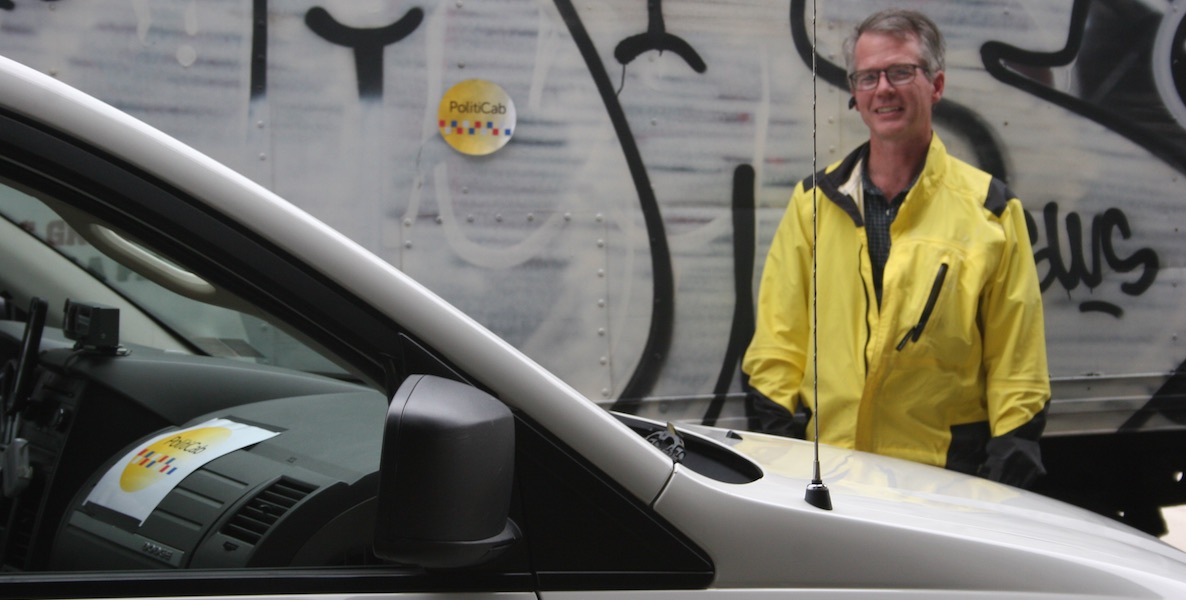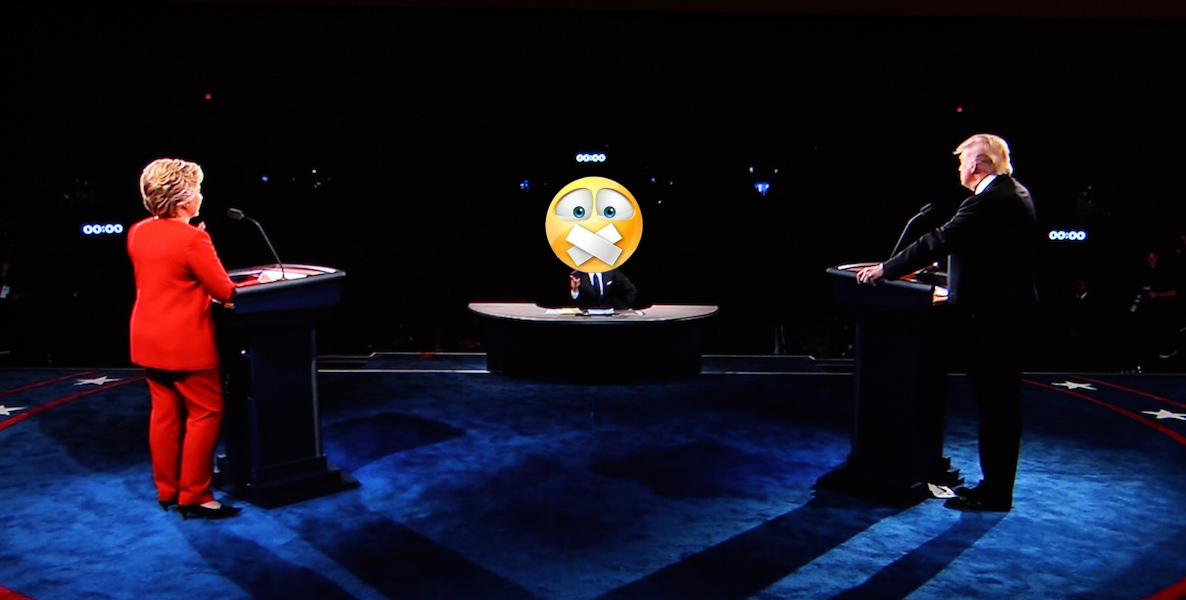During the Democratic National Convention, Braddock, PA Mayor John Fetterman took part in a far-ranging Citizen discussion about innovation in local government. But it was his comments on the perversity that passes for how we fund our political campaigns that has stayed with me ever since.
Fetterman, you’ll recall from his surprising showing during the U.S. Senate Democratic primary, is an atypical politician. In fact, he abhors being referred to by the term. “I consider myself a social worker who holds a public office,” he says. Nor does he—6’10”, tattooed, shaved head, goateed—look like the prototypical chief executive. But he has a Master’s in public policy from Harvard’s Kennedy School of Government and he’s spent the last 11 years fighting to bring his distressed city back from the economic abyss. He is, in short, what the electorate says it wants in its leaders: authentic, smart, committed. To wit: Those tattoos? They mark the dates of every murder victim in his city.
Fetterman’s primary campaign garnered 20 percent of the vote, an impressive showing for someone who only raised roughly $600,000. I recently caught up with him as he was driving on the Pennsylvania Turnpike, en route to make a stump pitch on behalf of nominee Katie McGinty. We began by talking about the overlooked epidemic of this election season: Runaway political spending, and its anti-democratic ramifications. The $6.3 billion spent on the presidential and congressional races four years ago will be surpassed by over $1 billion this cycle, driven by shadowy mega-donors. Fetterman says his upstart campaign opened his eyes to just how broken our campaign finance system is.
LP: As a candidate, how does fundraising make you feel?
Fetterman: Soulless. The tyranny of big dollar fundraising has taken us away from the principal of one man, one vote. It gets us away from equality. If you can give me $25,000, you’re more important than someone who can give me $25. It shouldn’t be that way.
LP: It’s interesting that even you, someone who ran a grassroots campaign, felt soiled by the transactional nature of the system.
Fetterman: Because it really is about a system. I want to be clear: I hate the game, not the players. It’s a bad system. You’re right, I raised $600,000 in mostly small dollar donations, much of it online. We showed, and certainly the Bernie Sanders campaign showed, that you can fund campaigns online with small dollar donations. The Internet can free us from that perverse Citizens United ruling that equates money with speech, which has led us to this point where just a handful of wealthy families are underwriting our politics. That’s a dangerous proposition.
“I fear it’s only going to get worse and worse. We need more people in the system to publicly admit what they all know. We need them to say, ‘I know this is wrong.’ I chafed at it consistently. And, I have to tell you, it feels really good to get this off my chest.”
LP: Yet, even running a grassroots campaign, you still had to do “call time,” where you just get on the phone and dial for dollars?
Fetterman: Oh, God, yes. I really struggled with it. It’s all about volume, volume, volume. We hired political fundraising contractors who would generate lists of people to call and, four or five days a week, I’d spend three to four hours on the phone, trying to separate complete strangers from their money. It feels really transactional. I just kept thinking to myself, “This isn’t why I got into politics. There’s got to be a better way.” At events, I even developed a habit of asking crowds, “Who here likes to ask strangers for money? Even better, who likes to be asked for money? Well, welcome to my world.” You start to feel like a telemarketer, only you’re selling yourself. It’s not dignified. Think of it. I’m calling you, and I don’t know if you just got laid off or if your child is sick. And I’m doing a sales pitch. I challenge anyone in that situation not to feel kind of gross.
LP: So what’s the answer?
Fetterman: The only thing I can think of is online. I’d much rather have 100 $25 donations than one $2,500 contribution. That’s more the essence of democracy. I’m a big believer in crowdfunding—why not crowd fund campaigns? We’ve been buying books and clothes online for years. We should be contributing online, too. When things aren’t working the way they should, it’s usually about the money. Why are we still arguing about climate science? Because a whole industry propped up by the fossil fuel industry has invested tens of millions of dollars into preserving the status quo. Gun control? Despite 90 percent of Americans agreeing with common sense regulations, lobbyists work a broken system. Well, our politics are broken, too. And that’s also about the money.
LP: The predominant reason campaigns are so expensive is the cost of TV advertising—
Fetterman: Which is insane. Think of all those ads, all those tens of millions of dollars spent on seeing who can make the other person seem more corrupt, more seedy. Coming from a community as poor as mine, where the average household income is under $20,000, it’s perverse. Do you know what $10 million could do in my community? And now we have all these dark money expenditures, you know, the ads that say at the end, ‘Paid for by Friends of Friends of American Friends,” or whatever. Well, no one is going to track that down and look that up, find out who’s funding our elections and why. Anyone who has had a front row seat to this process, as I have, knows that the system is broken.
“The tyranny of big dollar fundraising has taken us away from the principal of one man, one vote. It gets us away from equality. If you can give me $25,000, you’re more important than someone who can give me $25. It shouldn’t be that way.”
LP: Here’s a pretty elemental question. Did you like being a candidate for public office?
Fetterman: I love everything about it, other than the fundraising. I love going to events, meeting voters, debating ideas, helping to solve problems in real people’s lives. There was one moment on the Senate campaign where this all came together for me. We hired a fundraising consultant from Washington, D.C. And we’d just had a really great event with about 100 people and I was feeling pretty good. I said something to her like, “Everything is going pretty well, except the fundraising.” And her response pretty much ripped the heart out of my chest. She said: “Other than that, Mrs. Lincoln, how was the play?” I realized she was right, sadly.
LP: Last April 60 Minutes aired a report about Republican Congressman David Jolly, who says that, the day after he was elected, his party’s leadership told him his job was to raise $18,000 a day on the phone in these secretive call banks. He proposed a bill that would prohibit members of Congress from asking for money—period. Their staffers still could, but at least our elected representatives could spend their time legislating. Of course, he only got six co-sponsors, the bill went nowhere, his party felt betrayed, and now they’re not helping in his reelection bid. He may lose next month. It’s kind of a depressing cautionary tale.
Fetterman: I fear it’s only going to get worse and worse. We need more people in the system to publicly admit what they all know. We need them to say, “I know this is wrong.” I chafed at it consistently. And, I have to tell you, it feels really good to get this off my chest.
LP: Thank you, Mayor. Here’s hoping others in the system come out to at least acknowledge, as you have, that we have a problem.






